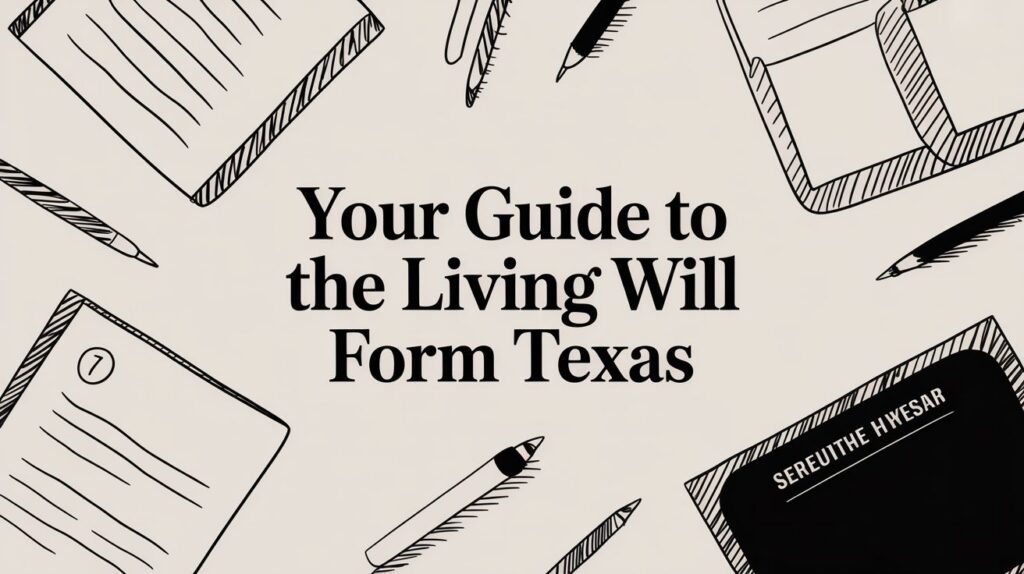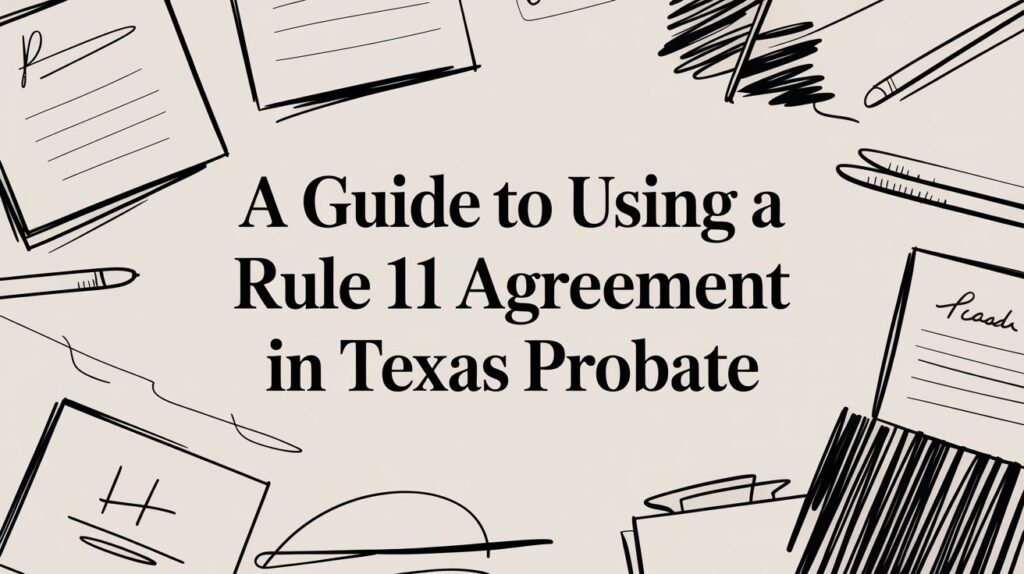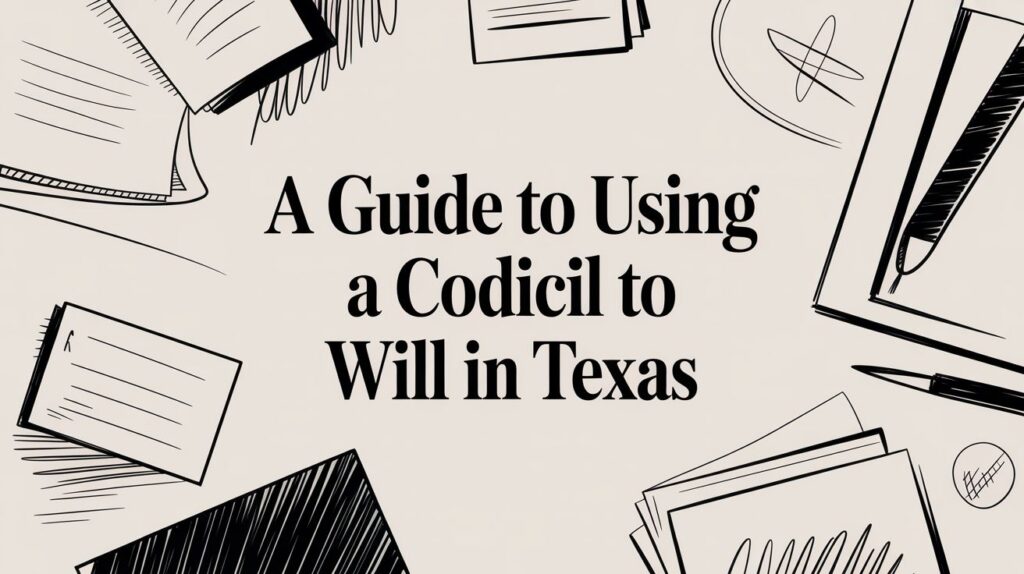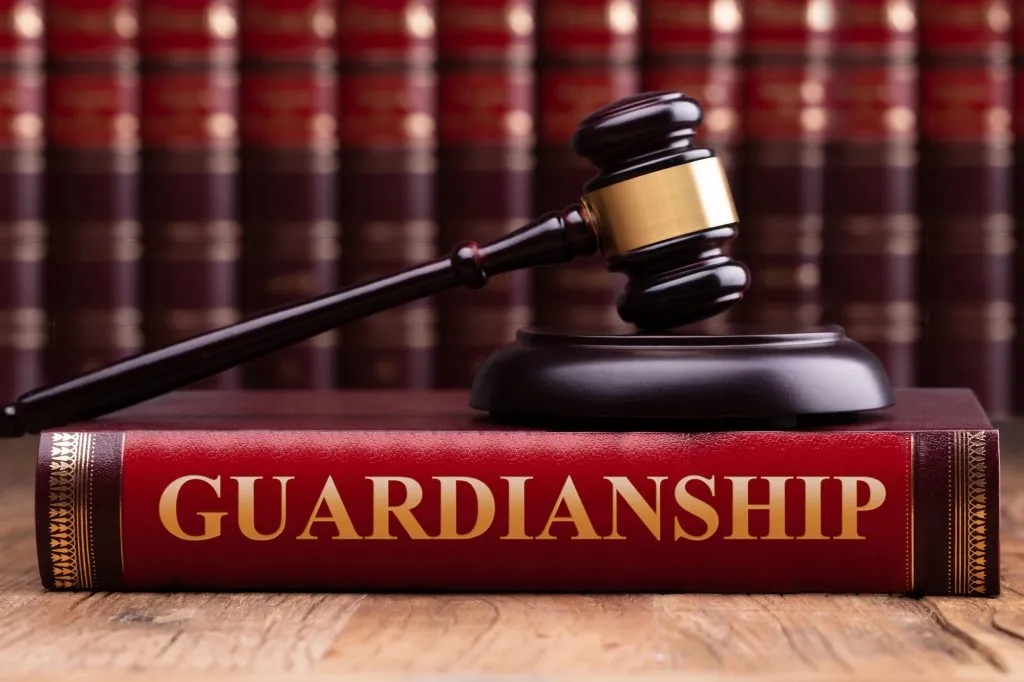When a loved one passes away, their will determines how their assets are distributed. But what happens if they left a handwritten will without witnesses? In Texas, this is called a holographic will, and while it is legal, probating it can be a complex process. Understanding how to probate a holographic will in Texas is crucial to ensuring that the deceased’s wishes are honored and that legal challenges are avoided.
In this article, we’ll break down how to probate a holographic will in Texas, the legal requirements for validity, and how courts determine authenticity. Whether you are an executor handling a handwritten will or a family member seeking clarity, this guide will walk you through the essential steps.
What Is a Holographic Will?
A holographic will is a will that is entirely handwritten and signed by the testator (the person making the will). Unlike formal wills, which require witnesses and notarization, a holographic will in Texas does not need to be signed by witnesses to be considered legally valid. However, this doesn’t mean it’s automatically accepted in probate court—certain conditions must be met for it to be legally binding.
For example, imagine John, an elderly Texas resident who, sensing his time was short, decided to write his will on a piece of notebook paper. He outlined who would inherit his home, bank accounts, and personal belongings. He signed and dated it, but didn’t have any witnesses or legal professionals involved. Now that he has passed away, his family must go through probate to determine if the handwritten will holds up in court.
This scenario is common, and knowing how to properly probate a holographic will in Texas can prevent legal disputes and unnecessary delays.

Is a Holographic Will Legal in Texas?
Yes, a holographic will is legal in Texas, but it must meet specific legal requirements to be considered valid in probate court.
Legal Requirements for a Holographic Will in Texas
- The entire will must be in the testator’s handwriting – It cannot be partially typed or written by another person.
- The testator must sign the will – A signature is necessary to prove authenticity and intent.
- It must clearly express how assets should be distributed – A vague or unclear will can lead to disputes.
- The testator must have had the mental capacity to create the will – If someone was mentally impaired at the time of writing, the will may be challenged.
If these conditions are not met, the court may reject the will, requiring the estate to go through intestate succession laws meaning the assets will be distributed according to Texas inheritance laws rather than the testator’s wishes.
How to Probate a Holographic Will in Texas
Probating a holographic will in Texas follows a similar process to probating a traditional will, but additional steps are required to prove its authenticity. The court must ensure that the will was entirely written in the testator’s handwriting and was not altered after their passing. Here’s a breakdown of the probate process for a handwritten will, detailing each necessary step to ensure its validity.
Step 1: File an Application for Probate
The first step is to file an application for probate in the county where the deceased person lived. This must be done in a Texas probate court and typically includes:
- The original handwritten will
- A death certificate
- A petition requesting to be appointed as executor or administrator
Once the application is filed, the court will schedule a hearing to review the validity of the will. This process ensures that all necessary documentation is in order and that there are no immediate objections to the probate. Additionally, the applicant may need to provide preliminary information regarding the deceased’s assets and debts.
Step 2: Notify Beneficiaries and Heirs
Texas law requires that all interested parties (beneficiaries, heirs, and creditors) be notified of the probate process. This allows anyone who wants to contest the will an opportunity to do so. Notice is typically provided through certified mail, publication in local newspapers, or personal service, depending on the circumstances.
For instance, let’s say John’s family finds his handwritten will and submits it to probate. His estranged son, who wasn’t included in the will, might contest its validity, arguing that John was coerced or mentally impaired when he wrote it. The court may also appoint a guardian ad litem if minor or incapacitated beneficiaries are involved. This step gives all parties a chance to present their case and ensures fairness in the probate process.
Step 3: Prove the Will’s Authenticity in Court
Unlike a formal will that has witness signatures, a holographic will must be proven to be authentic. This is where the court will closely examine the handwriting and other evidence. If the will is deemed inauthentic or invalid, the estate may be distributed according to Texas intestacy laws instead.
To establish authenticity, the court may require:
- Testimony from handwriting experts to confirm that the writing belongs to the deceased
- Affidavits from people familiar with the testator’s handwriting
- Witness testimony from family members or close associates who saw the deceased write the will
The burden of proving authenticity falls on the party submitting the will for probate. If doubts arise regarding its legitimacy, the court may conduct a formal hearing to resolve the issue. The judge may also consider other relevant evidence, such as letters or documents written by the deceased, to compare handwriting samples
Step 4: Appoint an Executor
If the will is accepted as valid, the court will appoint an executor (if named in the will) or select an administrator if no one is specified. The executor is responsible for:
- Gathering the deceased’s assets
- Paying debts and taxes
- Distributing the remaining assets to beneficiaries
If a dispute arises over the executor’s role, the court may appoint a neutral administrator to handle the estate. The executor must act in good faith and follow all court orders, as failure to do so could result in legal consequences. Additionally, the executor may need to file an inventory of the estate and obtain court approval before making certain distributions.
Step 5: Settle Debts and Distribute Assets
Before beneficiaries receive their inheritance, all outstanding debts must be settled. The executor must:
- Identify creditors and settle valid claims
- File necessary tax returns
- Distribute remaining assets according to the will
Once this process is completed and all legal requirements are met, the probate case can be officially closed. Any remaining disputes between heirs may require further court intervention, delaying the final distribution. In cases where the will is unclear or ambiguous, the court may need to interpret its meaning before approving asset distribution.

How Courts Determine the Authenticity of a Holographic Will
Since holographic wills lack witness signatures, the court must use other methods to verify authenticity. Here’s how courts determine whether a handwritten will is valid in Texas.
1. Handwriting Analysis
The court may request a handwriting expert to compare the will with other known samples of the deceased’s handwriting. If significant differences exist, the will’s validity could be questioned.
2. Affidavits from Witnesses
Family members, close friends, or business associates who were familiar with the deceased’s handwriting may provide affidavits confirming the authenticity of the will.
3. Evidence of Mental Competence
To be valid, the testator must have had the mental capacity to write the will. If there is evidence that they suffered from dementia, were under duress, or were heavily medicated, the court might deem the will invalid.
4. Proof of No Undue Influence
If someone pressured or manipulated the testator into writing the will in a certain way, the court could rule it void due to undue influence.
For example, if John’s new caretaker convinced him to rewrite his will in their favor while isolating him from family, this could be grounds to challenge the will’s validity.

Can a Holographic Will Be Contested?
Yes, a holographic will can be contested, just like a formal will. Common reasons for contesting a handwritten will in Texas include:
- Forgery or fraud – Someone falsely claims the will is handwritten by the deceased.
- Lack of mental capacity – The testator was not of sound mind when writing the will.
- Ambiguity – The wording of the will is unclear or contradictory.
- Undue influence – Someone coerced the testator into writing the will in their favor.
If a court finds a will invalid, Texas intestacy laws will determine how assets are distributed, meaning the testator’s intended wishes may not be honored.
Conclusion: Ensuring a Smooth Probate Process
Understanding how to probate a holographic will in Texas is essential to ensuring that a loved one’s final wishes are respected. While Texas allows holographic wills, proving their authenticity in court can be challenging. By following the proper probate procedures, securing handwriting verification, and seeking legal assistance if necessary, you can navigate the process with confidence and clarity.
If you are dealing with a holographic will in Texas, consulting an experienced probate attorney can help streamline the process and minimize disputes. Taking proactive steps ensures that your loved one’s estate is settled according to their true intentions.








